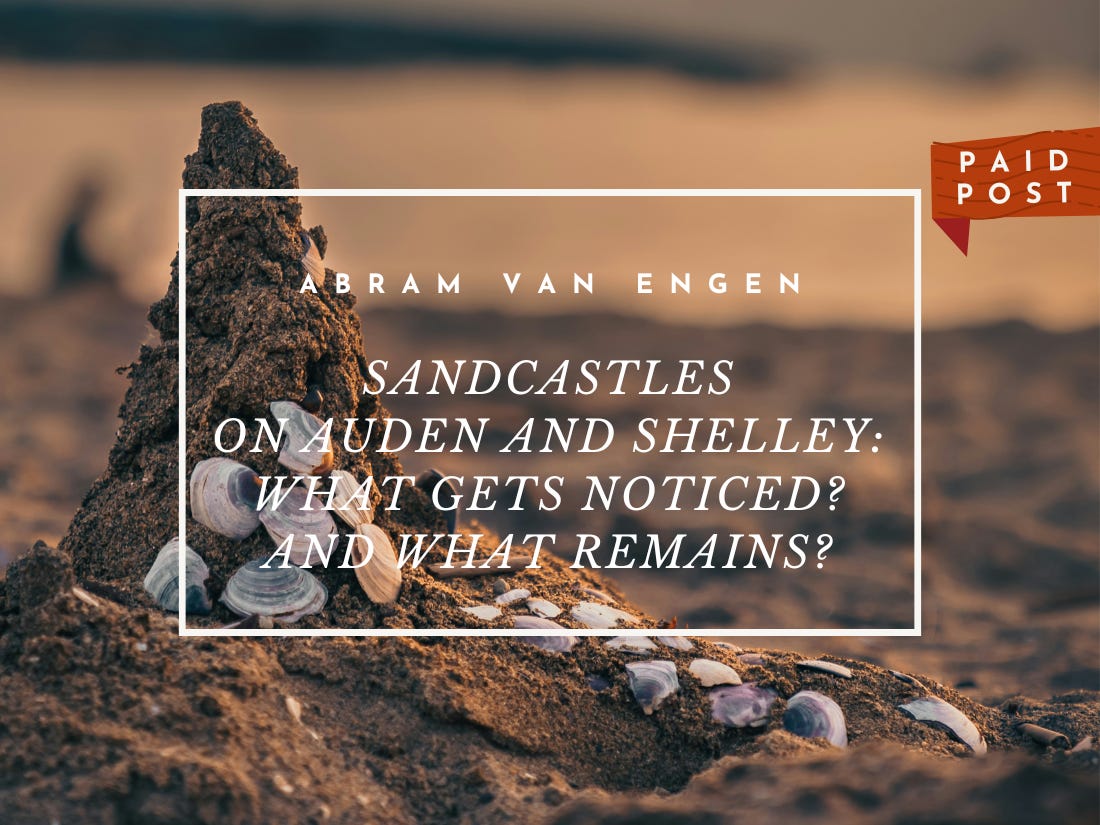For more articles, videos, books, and resources about faith and art, visit RabbitRoom.com.
by Abram Van Engen
I have a friend who likes to say, “All our work amounts to sandcastles. We don’t know when, but eventually, it washes away.” He isn’t sad about this fact. Instead, he notes it as a loving corrective to the natural impulse of human hubris—the desire to believe that we can achieve immortality in and through the work of our hands. Sandcastles are still worth building, he insists; it’s just good to know they are made of sand.
Two poems covered recently by Poetry For All, a podcast I co-host, consider mighty works, the mundane, what we notice, and what remains in the passage of time. In W.H. Auden’s “Musée des Beaux Arts,” a boy falls from the sky—Icarus, who flew too high and fell to tragedy in the sea. Yet in Auden’s poem, based on Brueghel’s painting “Landscape with the Fall of Icarus,” both the ambition and the drowning hardly register. “The dogs go on with their doggy life.” No one cares. What remains of that mighty act, that mighty fall?
In Percy Bysshe Shelley’s “Ozymandias,” meanwhile, a grand statue crumbles into the sand. “Look on my Works, ye Mighty, and despair!” Yet nothing remains except a ruined sculpture, two trunkless legs, the carving of a “wrinkled lip,” the “lifeless things” of rock. All that remains of this “King of Kings” is the broken work of an artist’s hand. Sandcastles made of stone.
I want to walk through these poems briefly to give a sense of how they reflect on what we build, what we notice, and what can be gleaned about the work of daily living.
Auden’s poem starts strong: “About suffering,” he states immediately. The topic is not in doubt. Written in 1938, on the cusp of World War II, Auden reflects on the banality of evil, the way we pass it by, let it go, carry on with our lives as tragedy unfolds around us. If it isn’t our wrong or hurt, Auden seems to say, then it doesn’t bear our noticing. We do not change our day.
Keep reading with a 7-day free trial
Subscribe to Rabbit Room Poetry to keep reading this post and get 7 days of free access to the full post archives.





